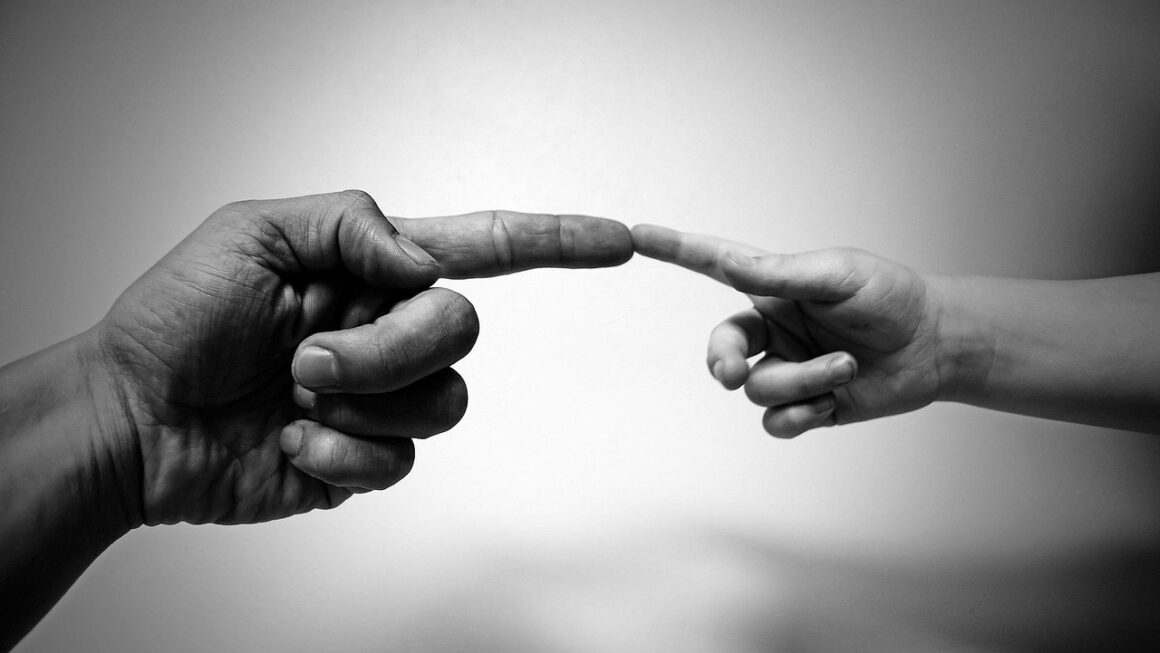Dating can feel like navigating a maze – exciting, confusing, and sometimes frustrating. Whether you’re re-entering the dating scene after a long break, looking for a meaningful connection, or simply trying to improve your dating experiences, understanding the fundamentals and adopting a strategic approach can significantly increase your chances of finding the right person. This guide provides actionable dating advice to help you navigate the modern dating landscape with confidence.
- Building a Strong Foundation: Self-Reflection and Goal Setting
- Mastering Online Dating: Crafting Your Profile and Engaging Effectively
- First Date Success: Making a Great Impression and Building Connection
- Navigating Rejection and Maintaining a Positive Mindset
- Recognizing Red Flags and Setting Boundaries
- Conclusion
Building a Strong Foundation: Self-Reflection and Goal Setting
Understanding Your Values and Needs
Before diving into dating, take time for self-reflection. Knowing yourself is crucial for identifying compatible partners.
- Identify your core values: What’s most important to you in life? Is it family, career, adventure, spirituality, or something else? Understanding your values helps you find someone with compatible priorities. Example: If honesty is a core value, seek partners who demonstrate integrity in their words and actions.
- Recognize your needs: What are your emotional and practical needs in a relationship? Do you need someone who is supportive, communicative, adventurous, or financially stable? Being aware of your needs allows you to articulate them clearly and look for partners who can fulfill them. Example: If you need consistent communication, explicitly express this expectation early in the dating process.
- Acknowledge your dealbreakers: What are the non-negotiables in a relationship? Identify red flags that would make a relationship unsustainable for you. Example: If you strongly desire children and your date states they never want kids, recognize this incompatibility early on.
Setting Realistic Dating Goals
Define what you hope to achieve through dating. Are you looking for a long-term relationship, casual dating, or simply expanding your social circle?
- Define your intentions: Be honest with yourself and potential partners about your dating goals. Clarity upfront avoids misunderstandings and wasted time. Example: Stating “I’m looking for a serious relationship” on your dating profile sets a clear expectation.
- Set achievable milestones: Break down your dating journey into smaller, manageable steps. This helps you track progress and stay motivated. Example: Instead of aiming to “find the one” immediately, set a goal to go on one new date per week for a month.
- Be open to evolving goals: Recognize that your desires and priorities might change as you learn more about yourself and your potential partners. Don’t be afraid to adjust your goals as needed. Example: You might start dating casually but later realize you desire a deeper connection.
Mastering Online Dating: Crafting Your Profile and Engaging Effectively
Optimizing Your Dating Profile
Your online dating profile is your first impression. Make it count.
- Choose high-quality photos: Use clear, recent photos that showcase your personality and interests. Include a variety of shots – a headshot, a full-body shot, and photos of you doing activities you enjoy. Example: Avoid group photos where it’s difficult to identify you and steer clear of heavily filtered pictures.
- Write a compelling bio: Your bio should be authentic, engaging, and informative. Highlight your interests, values, and what you’re looking for in a partner. Example: Instead of a generic “I like to travel,” write “I’m passionate about exploring new cultures and trying unique foods. Currently planning a trip to Southeast Asia!”
- Use keywords strategically: Incorporate relevant keywords that describe your interests and the type of person you’re looking for. This helps your profile appear in more searches. Example: If you enjoy hiking, include “hiking,” “outdoors,” and “nature” in your profile.
- Proofread carefully: Typos and grammatical errors can be a turn-off. Proofread your profile carefully before publishing it. Ask a friend to review it as well.
Engaging in Meaningful Conversations
Online communication sets the stage for a successful date.
- Personalize your messages: Avoid generic greetings like “Hey” or “What’s up?” Take the time to read their profile and craft a personalized message that shows you’re genuinely interested. Example: “I noticed you’re a fan of [band/book/activity]. I love them too! What’s your favorite song/chapter/experience?”
- Ask open-ended questions: Encourage conversation by asking questions that require more than a simple “yes” or “no” answer. Example: Instead of “Do you like to travel?”, ask “What’s the most memorable trip you’ve ever taken and why?”
- Be responsive and engaging: Respond to messages promptly and participate actively in the conversation. Show genuine interest in what they have to say. Avoid long periods of silence or one-word responses.
- Be yourself: Authenticity is key. Don’t try to be someone you’re not. Be genuine in your interactions and let your personality shine through.
First Date Success: Making a Great Impression and Building Connection
Preparing for the Date
Preparation minimizes anxiety and maximizes your chances of a positive experience.
- Choose a suitable location: Select a venue that is conducive to conversation and allows you to get to know each other. A coffee shop, park, or museum are good options for a first date. Avoid loud or distracting environments like nightclubs or movie theaters.
- Plan your outfit: Dress in a way that makes you feel confident and comfortable. Choose an outfit that is appropriate for the venue and occasion. Consider your date’s style when making your selection.
- Have conversation starters ready: Prepare a few open-ended questions or topics to discuss in case there are lulls in the conversation. Think about current events, your interests, or shared experiences.
- Safety first: Always meet in a public place and let a friend or family member know where you’re going and who you’re meeting. Consider sharing your location with them.
During the Date: Building Rapport and Showing Interest
Creating a positive connection is essential for a successful first date.
- Be present and engaged: Put away your phone and give your date your undivided attention. Listen attentively to what they have to say and make eye contact.
- Be a good listener: Show genuine interest in your date’s thoughts, feelings, and experiences. Ask follow-up questions and offer supportive comments. Avoid interrupting or dominating the conversation.
- Share about yourself: Share your interests, values, and experiences in an authentic and engaging way. Be open and honest, but avoid oversharing or discussing sensitive topics too early on.
- Practice good manners: Be polite, respectful, and considerate of your date’s feelings. Use good table manners, avoid controversial topics, and be mindful of your body language.
- Offer sincere compliments: Compliment your date on their appearance, personality, or achievements. Be genuine and specific in your compliments. Example: Instead of a generic “You look nice,” say “I love your dress, the color really suits you.”
Navigating Rejection and Maintaining a Positive Mindset
Dealing with Rejection Gracefully
Rejection is a normal part of dating. It’s important to develop healthy coping mechanisms.
- Don’t take it personally: Rejection is often about compatibility and not necessarily about your worth as a person. Remember that everyone has different preferences and criteria.
- Learn from the experience: Reflect on the date and identify any areas where you could improve. Were you too nervous? Did you dominate the conversation? Use the feedback to grow and learn.
- Focus on your strengths: Remind yourself of your positive qualities and accomplishments. Focus on building your self-esteem and self-worth.
- Practice self-care: Engage in activities that make you feel good about yourself. Spend time with friends and family, exercise, pursue hobbies, and prioritize your mental and emotional well-being.
- Keep dating: Don’t let rejection discourage you from continuing your search. The right person is out there, and it takes time and effort to find them.
Cultivating a Positive Mindset
A positive attitude can significantly improve your dating experiences.
- Believe in yourself: Have confidence in your ability to attract a loving and fulfilling relationship. Focus on your strengths and positive qualities.
- Focus on the positive aspects: Instead of dwelling on negative experiences, focus on the positive aspects of dating. Appreciate the opportunity to meet new people and learn more about yourself.
- Practice gratitude: Express gratitude for the good things in your life, including your health, friends, family, and opportunities. Gratitude helps you maintain a positive perspective.
- Visualize success: Imagine yourself in a happy and fulfilling relationship. Visualize the qualities you desire in a partner and the type of relationship you want to create.
- Stay optimistic: Believe that you will eventually find the right person for you. Maintain a positive and hopeful attitude, and don’t give up on your search.
Recognizing Red Flags and Setting Boundaries
Identifying Warning Signs
Being aware of red flags can protect you from unhealthy or even dangerous relationships.
- Love bombing: Excessive flattery and attention early on, often used to manipulate.
- Controlling behavior: Attempts to isolate you from friends and family, dictate your actions, or monitor your whereabouts.
- Jealousy and possessiveness: Unfounded accusations, constant questioning, and attempts to control your interactions with others.
- Disrespectful communication: Name-calling, insults, and dismissive language.
- Gaslighting: Manipulating you into questioning your own sanity and perceptions.
- Lack of accountability: Blaming others for their mistakes and refusing to take responsibility for their actions.
- Inconsistent behavior: Actions and words that don’t align, leading to confusion and distrust.
Setting and Enforcing Boundaries
Establishing clear boundaries is crucial for maintaining healthy relationships.
- Define your boundaries: Identify your limits in terms of physical touch, emotional intimacy, communication frequency, and other aspects of the relationship.
- Communicate your boundaries clearly: Express your boundaries assertively and respectfully. Let your date know what you are comfortable with and what you are not.
- Enforce your boundaries: Be consistent in upholding your boundaries. If your date crosses a line, address it immediately and reinforce your limits.
- Be prepared to walk away: If your date consistently disregards your boundaries or makes you feel unsafe, be prepared to end the relationship. Your safety and well-being should always be your top priority.
- Prioritize self-respect: Respect your own needs and boundaries. Don’t compromise your values or settle for less than you deserve.
Conclusion
Dating is a journey of self-discovery and connection. By focusing on self-reflection, mastering online dating, preparing for first dates, navigating rejection with grace, recognizing red flags, and setting healthy boundaries, you can increase your chances of finding a meaningful and fulfilling relationship. Remember to be yourself, stay positive, and trust that the right person is out there waiting for you. Happy dating!




